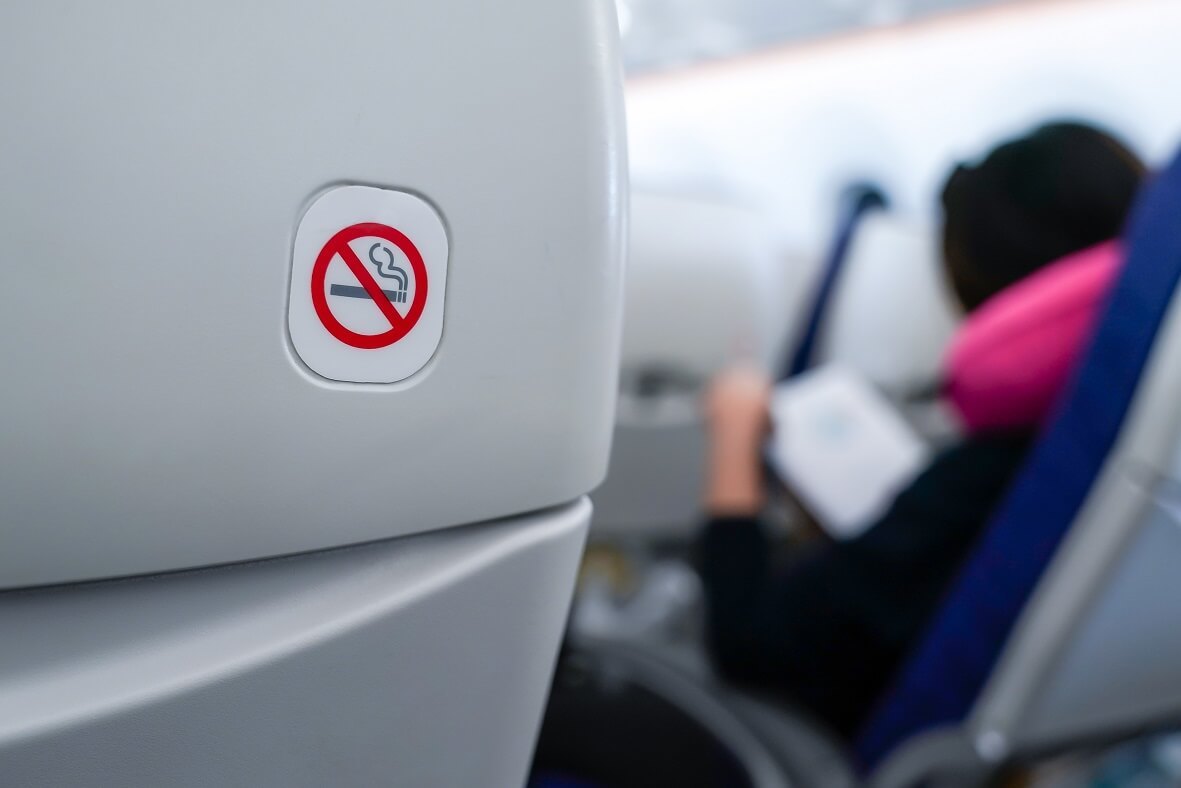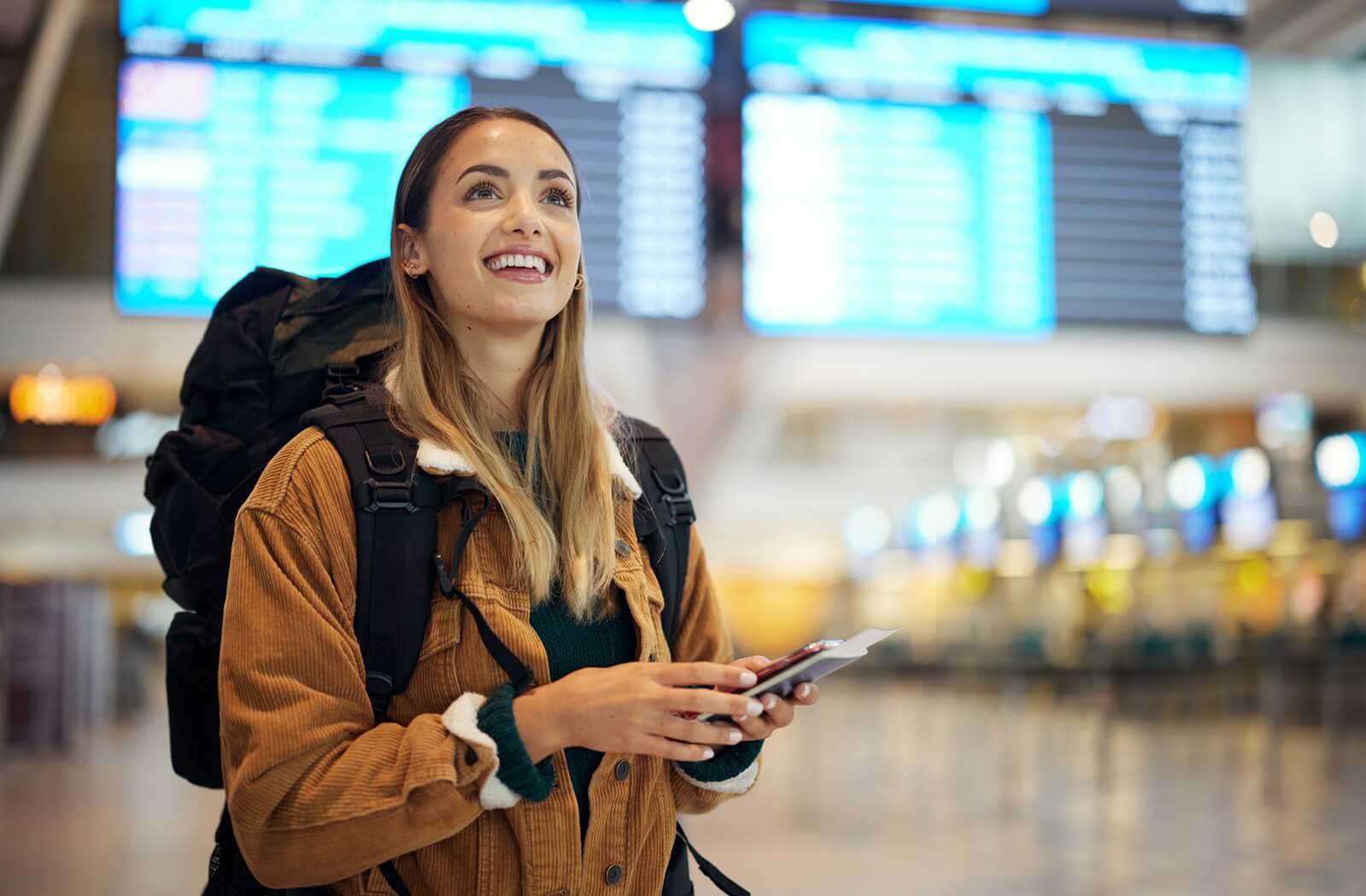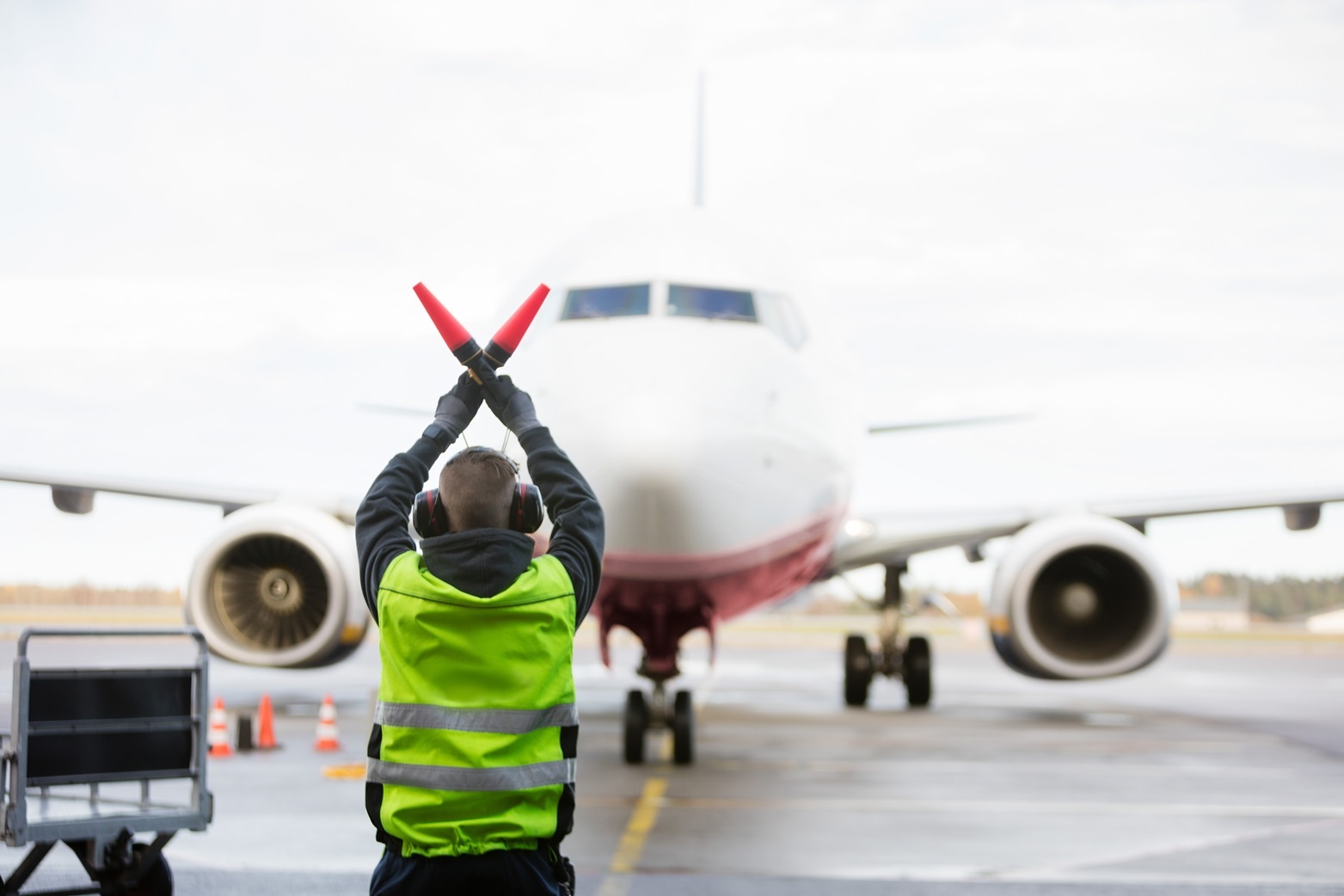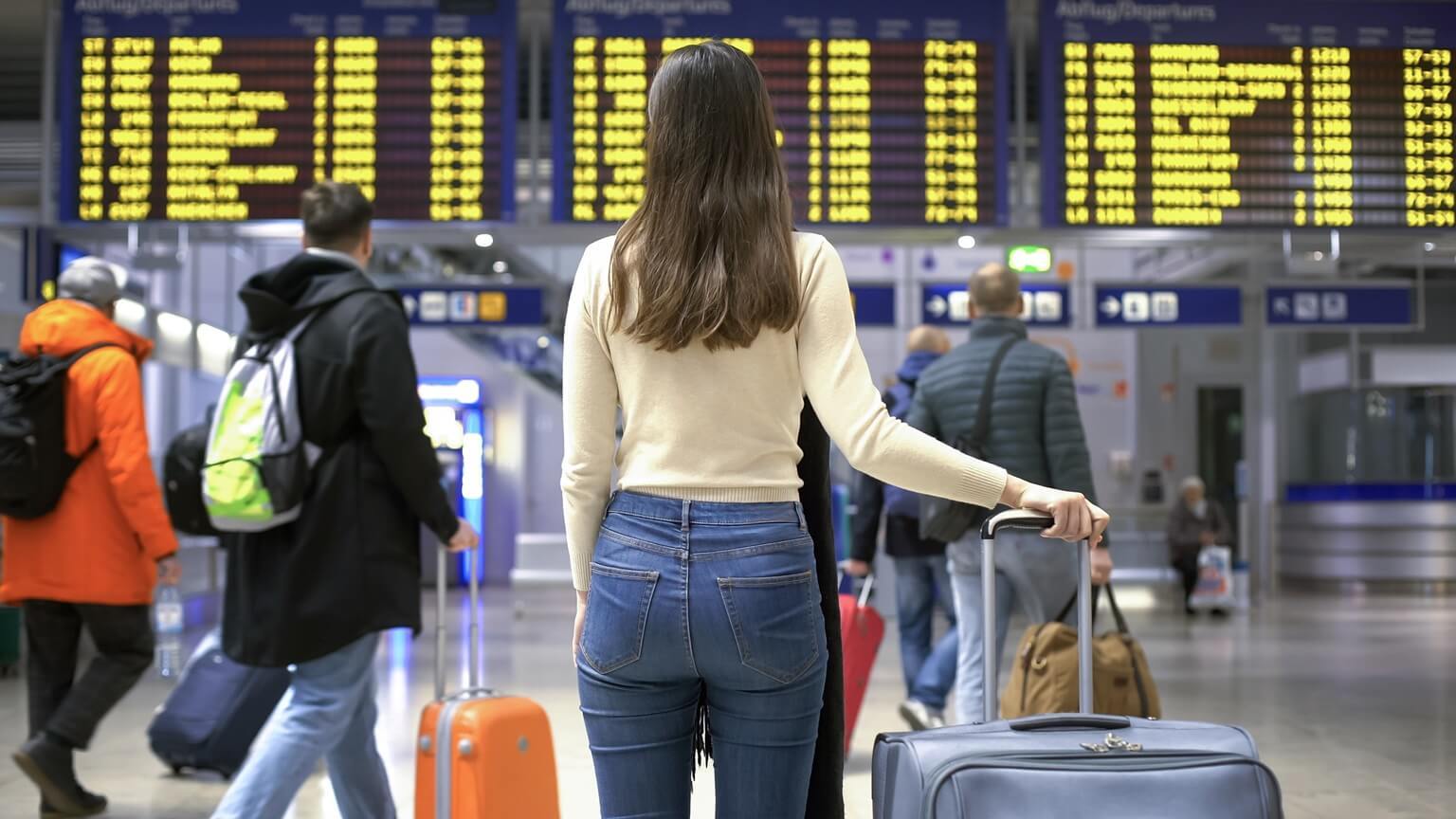Smoking on an airplane: Why it's a bad idea!

Air travel can be exhausting, especially if you're a smoker. Many airlines have strict no-smoking policies on board, including in the toilets. Yet, you can still find ashtrays on board many airplanes, as if smoking on board poses no risk. However, that's a misconception! If you want to avoid serious consequences, you should refrain from smoking on board, even if the flight is long.
Why is smoking during a flight not allowed?
The presence of an ashtray on an airplane is by no means an invitation to smoke. This is an important fact that smokers should take seriously. Smoking on an airplane is banned for a good reason; it not only endangers the health of fellow passengers but can also, in the worst-case scenario, start fires.
Smoking in the airplane toilet
To emphasize the seriousness of this regulation, consider a memorable incident from the spring of 2017. A British passenger triggered an expensive emergency landing due to his smoking behavior. Unable to resist smoking on the plane, he sneaked into the toilet. Unfortunately, a smoldering cigarette butt ended up in the trash, and shortly thereafter, a fire broke out. The fire couldn't be immediately extinguished, and the pilot decided to abort the flight prematurely. The consequences for the smoker were severe: he didn't just receive a fine; he was sentenced to nine and a half years in prison. While such drastic penalties are rare, the usual sanctions for smokers can be very unpleasant.
Smoking ban on airplanes: Penalties for smoking
German airlines are subject to the regulations of the Federal Aviation Office, which includes rules on smoking in airplanes. Smoking on an airplane is legally prohibited, and airlines can enforce their property rights. If you go to the toilet to smoke during the flight, you are responsible for all consequences of your actions.
Keep in mind: Even in the restroom, you are not unobserved because the smoke detector is keeping an eye on you. If the smoke detector sounds an alarm and you don't open the door when instructed by the crew, a crew member may gain access from the outside. You will be responsible for the costs of any potential damage.
But that's not all; even if no damages occur, you will generally face charges. This will be followed by an administrative offense procedure, and you will be responsible for the associated costs. So, smoking on an airplane generally results in significant penalties, and you won't have any fun with that. In foreign aircraft, the penalties can be even more severe as laws are sometimes very strict.
The ashtrays in the passenger cabin and in the toilet are not an invitation to smoke; they serve solely as emergency solutions. If a passenger still decides to smoke, a proper ashtray is still the safest option for cigarette disposal. The cabin crew will likely extinguish the glowing cigarette butt to eliminate any danger.
The significance of no-smoking signs
The no-smoking signs located above passengers' heads are still important today. German airlines are legally obligated to clearly indicate that smoking on the plane is prohibited. These warning signs and lights are also included in the building regulations for large airplanes, which have been established by the European Aviation Safety Agency (EASA). The Federal Aviation Administration (FAA) in the United States also mandates clearly visible "No-Smoking" signs. These signs must be visible from every seat under all lighting conditions and operable from the pilot's seat.
After considering all this information, it should be clear that it's best to refrain from smoking during the flight. You can undoubtedly look forward to smoking after landing when you have solid ground beneath your feet, but only in the designated smoking area.
Latest posts
Understanding EC261: How Europe protects your rights
Learn all about EC261: How European passenger rights protect you in cases of flight delays, cancellations, and issues.
Top 5 legal rights every airline passenger should know
Learn about the top 5 flight rights every passenger should know, from compensation to claims for delays.
What to do when the airline rejects your claim?
What to do if the airline rejects your compensation claim? Tips on legal steps, support, and your available options.
About MYFLYRIGHT
MYFLYRIGHT is a legal tech company, specialized in the support of airline passengers affected by flight delays, flight cancellations, denied boarding, delayed or lost luggage and the refund of unused airline tickets. MYFLYRIGHT was founded 2016 in Hamburg, Germany. The company operates out of 3 offices, its headquarter in Hamburg and its branches in Prague, Czech Republic and Zaporizhia, Ukraine. Currently, MYFLYRIGHT employs a team of around 25 people working in Marketing, Operations, Legal, Customer Support and IT. The organization operates across 5 markets – Germany, United Kingdom, Romania, Austria, and Switzerland.
MYFLYRIGHT’s goal is to provide access to justice for all aviation passengers who experience irregularities in their flight transportation. Notably, 75% of all compensation requests submitted by passengers get rejected. Whereas, MYFLYRIGHT is able to successfully execute the applicable customer claims in more than 98% of cases at court.












